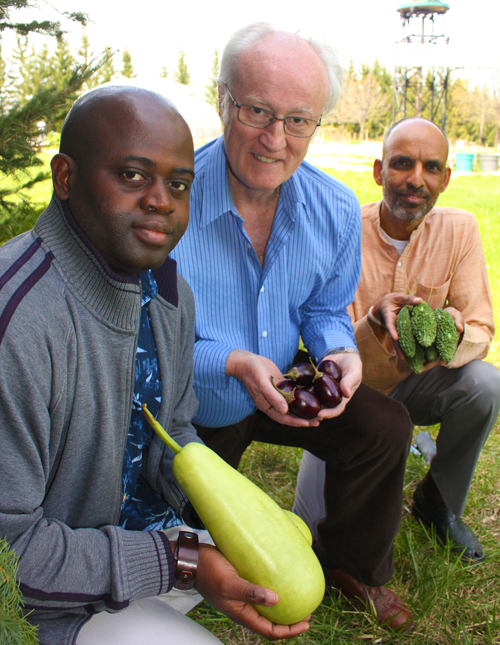When questions emerged about a decade ago regarding whether — and to what extent —Toronto’s immigrant communities could access their preferred vegetables, our multiethnic team sought empirical answers. We interviewed 250 vegetable buyers each from the Greater Toronto Area’s largest ethnic groups — South Asian, Chinese and Afro-Caribbean Canadians — to determine their 10 preferred vegetables, such as okra, callaloo, bok choy, and bitter melon. They also told us their monthly ethnocultural vegetable (ECV) expenditure. In 2010, we thus determined their ”effective ECV demand” was $61 million/month, and this has since grown to about $800 million/year in 2018.
These results generated attention from the media, horticultural researchers, farmers, supermarkets and ethnic stores who were interested in these largely tropical “ethnocultural vegetables.” But they also raised more questions, such as which of them can be grown in Canada. Working with horticulturalists who focused on how to grow those vegetables which we had determined were most popular, we then investigated global ECV value chains, vegetable pricing, and the roles of the dominant corporate food regime and emerging local food movement in meeting this demand. After publishing several journal articles, conducting ECV demand workshops, and being active on social media, we decided to write a book about our work.
To study the barriers to ethnic groups’ food sovereignty, our combined political/economic approach had identified key societal contradictions. Poorer immigrants, for instance, tend to inhabit food deserts where they can access cheaper, unhealthy junk food, but not their cherished, but more expensive, ethnocultural vegetables. We employed historical class analysis of these ethnic groups’ cuisines and ethnic vegetable value chain analysis to study wholesale Ontario Food Terminal companies, ethnic stores and supermarket ECV pricing. We found that farmers’ markets are insufficiently inclusive and generally lack ECV, despite the fact that ethnic vegetable cross-over is expanding to other ethnic and national groups. We also found that Community Supported Agriculture groups (CSAs) are now growing and supplying more ECV.
In addition to the corporate/local ethnocultural vegetable conflicts, the cheaper industrial diet blocks people from accessing healthier ethnocultural vegetables. Too many immigrants are unable to afford ethnocultural vegetable alternatives (to their actual preferred ECVs) that many corporations promote. There are contradictions between mainstream commercial agriculture and both the temporary foreign workers many superexploit as well as the small, organic ECV growers with whom these commercial farmers compete. Conflicts also exist between the predominant vegetable growers of European descent and their multi-ethnic wholesale and retail consumers.
This book argues that Human Rights Codes should require that people have access to culturally appropriate food, and governments should consider tax incentives for farmers wanting to grow ECV locally. The inclusivity of farmers’ markets and CSAs needs to be augmented and more food hubs need to be initiated. Interdisciplinary ECV research should be expanded and disseminated. Canadian food sovereignty and our health depend upon it.
Dr. Glen Filson is Professor Emeritus at the University of Guelph. He is co-investigator of a SSHRC Insight Development Grant on Food Sovereignty and Refugee Path Immigrants. He has edited and co-authored other books including Intensive Agriculture and Sustainability: A Farming Systems Analysis (2004) which was also ASPP supported.
Dr. Bamidele Adekunle is a Professor at the University of Guelph and at Ryerson University. He is the principal investigator of the SSHRC Insight Development Grant on Food Sovereignty and Refugee Path Immigrants. He is also the co-editor of a book entitled Negotiating South-South Regional Trade Agreements: Economic Opportunities and Policy Directions for Africa (2017).
Bookmark It!
As the voice of the humanities and social sciences in Canada, the Federation is a great supporter of books. Our Awards to Scholarly Publications Program (ASPP) has supported the publication of important Canadian scholarly books since 1941. Bookmark it! shares the story behind some of these fascinating books. Occasionally, we’ll also highlight other books that are significant to Canadian culture, society and research. Read more posts.
Photo credit: University of Guelph's communication team, Spark


